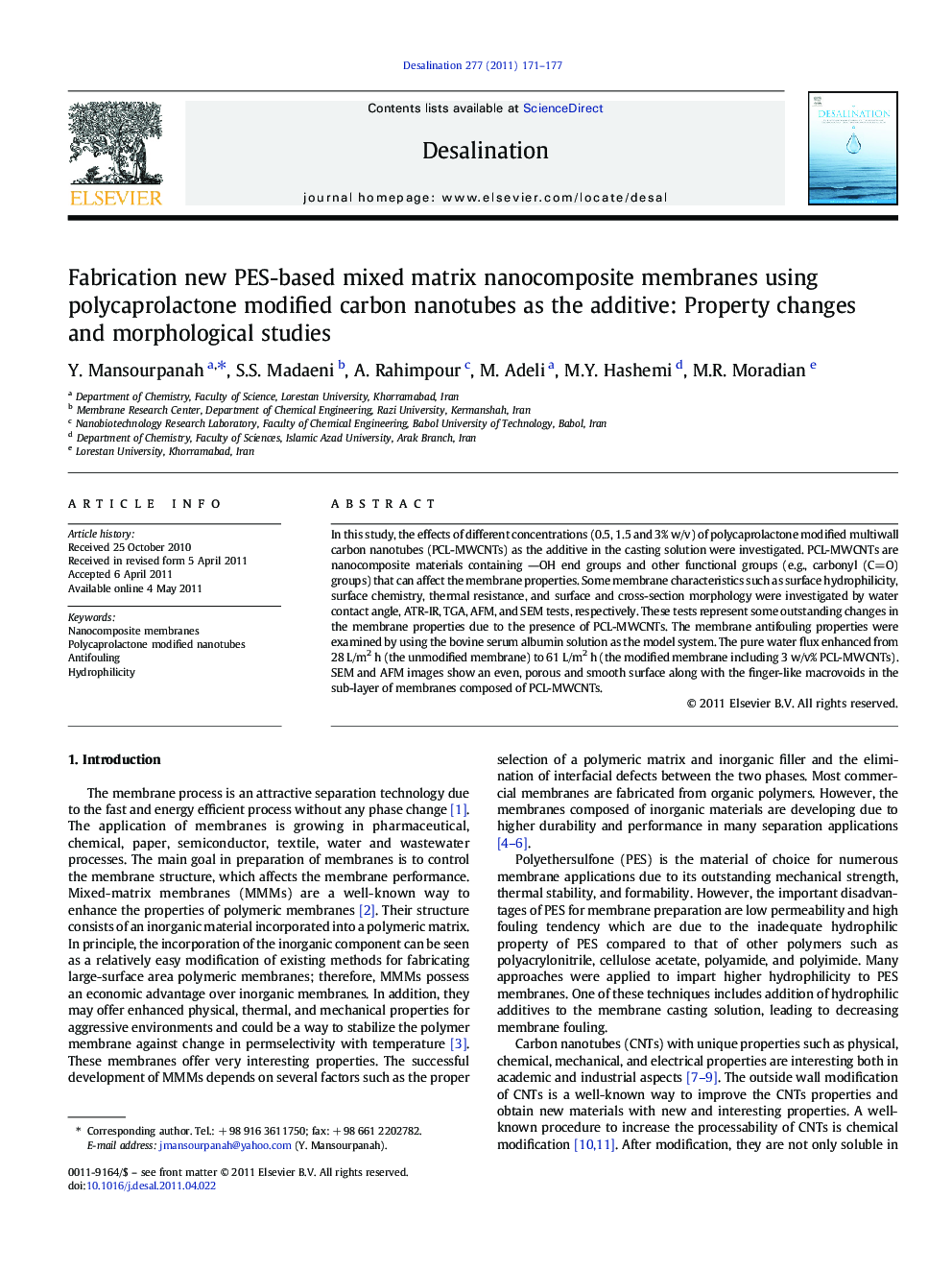| Article ID | Journal | Published Year | Pages | File Type |
|---|---|---|---|---|
| 625021 | Desalination | 2011 | 7 Pages |
In this study, the effects of different concentrations (0.5, 1.5 and 3% w/v) of polycaprolactone modified multiwall carbon nanotubes (PCL-MWCNTs) as the additive in the casting solution were investigated. PCL-MWCNTs are nanocomposite materials containing ―OH end groups and other functional groups (e.g., carbonyl (C=O) groups) that can affect the membrane properties. Some membrane characteristics such as surface hydrophilicity, surface chemistry, thermal resistance, and surface and cross-section morphology were investigated by water contact angle, ATR-IR, TGA, AFM, and SEM tests, respectively. These tests represent some outstanding changes in the membrane properties due to the presence of PCL-MWCNTs. The membrane antifouling properties were examined by using the bovine serum albumin solution as the model system. The pure water flux enhanced from 28 L/m2 h (the unmodified membrane) to 61 L/m2 h (the modified membrane including 3 w/v% PCL-MWCNTs). SEM and AFM images show an even, porous and smooth surface along with the finger-like macrovoids in the sub-layer of membranes composed of PCL-MWCNTs.
Research highlights► The morphology and performance of PES/PCL-MWCNT membranes were changed. ► The sponge-like pores of the PES membrane were turned into finger-like pores in modified membranes. ► The porosity, hydrophilicity and pure water flux of membranes increased. ► The water contact angle decreased. ► The height of surface convexes changed from 80 nm to 26 nm.
